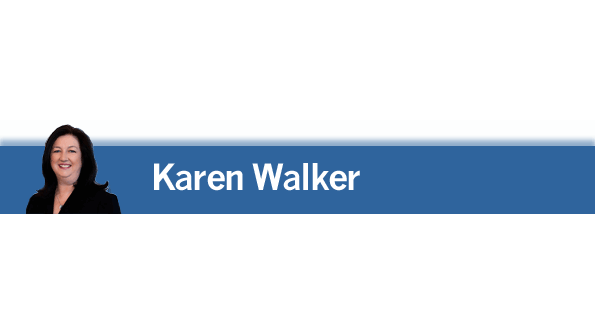All in a non-paid TSA agent’s day’s work

An op-ed in the Washington Post today makes interesting reading. It’s by a TSA officer affected by the US government shutdown. TSA agents are among those federal workers whose work is deemed essential, so they must continue to work through the shutdown, but will not be paid after their current pay period ends Jan. 11.
Typically, once the government is re-opened, Congress votes to backpay those federal employees that were mandated to work through the shutdown. But as Angel Stephenson, a TSA agent at Salt Lake City Airport, points out, that’s small comfort because the bills don’t get suspended in the interim. In Stephenson’s case, her husband is also a TSA officer, so they have zero income until the shutdown ends.
Lest you’ve been in hibernation the past month, the shutdown was brought about because of a stalemate between President Trump, the Republican-controlled Senate and the newly-Democrat controlled House over the $5.7 billion funds Trump insists Congress must authorize to construct a security wall on the US-Mexico border.
My interest in Stephenson’s commentary lies not in the politics of the shutdown. It’s the insight she gives into the everyday working lives of TSA agents and which are likely similar to airport security officers most places in the world.
Stephenson’s work days begins early. She briefs her team before they go to work on a shift that starts at 3.30am.
“Working for the Transportation Security Administration isn’t glamorous on the best of days,” Stephenson notes. “Travelers never seem to understand what ‘empty’ means (nothing at all in your pockets, no liquid in that thermos), or that I do not want to pat them down (it’s the worst part of my job). Though we’re just enforcing the rules that keep the public safe, most people treat us as the jerks who take away their nail clippers. Even in a normal year, turnover is high—80% at the busiest airports.”
Essentially, it’s a tedious, unappreciated job. But it’s essential and it works; US commercial air travel has been kept safe from terrorism since the 9/11 attacks. TSA has become smarter since its inception. Initiatives like expedited TSA PreCheck lanes and new technologies have considerably improved the screening process.
If there’s any upside to the government shutdown situation, Stephenson notes that travelers are generally being kinder to TSA officers, even thanking them for their work. One passenger offered a cash tip; Stephenson would have been fired if she had accepted.
That caught my attention because I traveled through a foreign airport last year where one of the security screening officers asked me for a tip after my carry-on bag went into the X-ray machine, then he started to insist until I said loudly, “this is security, you should not take tips”. He went quiet then.
It’s a good time to appreciate the TSA. And to empty your pockets, drink up that bottle of water and leave behind the big shampoo dispenser.
Karen Walker, [email protected]